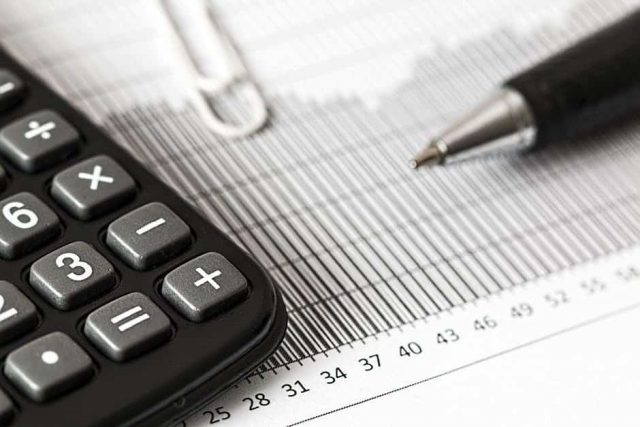As a company director you are legally responsible for ensuring you company and you pay the correct taxes. One essential step to helping you do this is to engage an accountant who is experienced at working with small companies and contractors in particular. This will mean that you have the support of a professional who keeps up to date with changes in tax laws and can give you guidance specific to your and your company’s position. Even with your accountant’s support however you should have at least a broad understanding of the liabilities. Different taxes are due from the company and its directors/shareholders. This guide explains the main taxes for each.
,a id=”CorporationTax”>
Corporation Tax
Your company is liable to pay Corporation Tax on all of its profits each year. The company’s profits are defined as the money the company has earned in the year (turnover) less employment costs (salaries and Employers’ NI contributions) and other tax deductible expenses (see our Guide to Expenses). The Corporation Tax rate for 2017/18 is 19%.
The company’s tax year runs from the month in which it is established until the end of that month in the following year, so if you set up your company on 21 September 2017, its first year end will be 30 September 2018 and all future years will run from 1 October to 30 September. The company’s tax returns must be filed and Corporation Tax liabilities paid by 9 months after your year end.
Employers’ National Insurance Contributions
If you, like most company directors, take a salary from your company, the company must pay Secondary (Employers’) National Insurance Contributions. There are no contributions due on the first £8,164 of salary, above this the rate is 13.8%.
If you are paying yourself a salary your accountant will register the company as an employer on the Pay As You Earn (PAYE) scheme and will run a payroll report for each salary payment, calculating the amount due. This amount needs to be paid to HMRC by the 22nd of the month following the salary payment.
Income Tax
If you are taking a salary from your company this is subject to Income Tax through the PAYE system. There is an income tax free allowance set each year, for 2017/18 this is £11,500. Since the minimum wage rules do not apply to shareholder-directors you are free to set your salary at whatever amount you wish, most directors choose to take a salary below the threshold, so that they do not incur an Income Tax liability.
If you are paying yourself a salary your accountant will register the company as an employer on the Pay As You Earn (PAYE) scheme and will run a payroll report for each salary payment, calculating the amount due. This amount needs to be paid to HMRC by the 22nd of the month following the salary payment.
If you have income from other sources such as rental properties or interest on savings not held in an ISA, you (or your accountant) will need to record this on your Self Assessment Tax Return, and calculate any Income Tax Due. The return must be filed and any tax due paid by 31 January following the end of the tax year (6 April-5 April) in which the income is received.
Employee’s National Insurance Contributions
If you are taking a salary from your company you must pay Primary (Employee’s) National Insurance Contributions. As with Employers’ NI Contributions there is a personal allowance of £8,164 a year before contributions are due. The rate is 12% for amounts between the threshold and £45,000, and 2% on all earnings above £45,000.
If you are paying yourself a salary your accountant will register the company as an employer on the Pay As You Earn (PAYE) scheme and will run a payroll report for each salary payment, calculating the amount due. This amount needs to be paid to HMRC by the 22nd of the month following the salary payment.
Dividend Tax
As a shareholder of a limited company you are entitled to a share of the company’s net profit (i.e. the amount remaining after Corporation Tax is due) proportional to your shareholding. If you are the only shareholder this proportion will be 100%. Money taken from the company in this way is known as a dividend, and is subject to Dividend Tax.
There is a Dividend Tax-free allowance of £5,000 for 2017/18, although this is reducing to £2,000 in 2018/19). Above this there are 3 bands based on your total income (combined salary and dividends). Dividends between the threshold and the point where total income reaches the Higher Rate Threshold (£45,000 in 2017/18) are taxed at 7.5%, between the Higher Rate Threshold and the Additional Rate Threshold (£150,000) dividends are taxed at 32.5% and above the Additional Rate Threshold all dividends are taxed at 38.1%.
You can choose what amount to take as a dividend, so long as there is enough profit in the company to pay it. Many contractors use this to allow them to manage their tax liabilities in any given year, leaving money in the company rather than incurring the higher rates of Dividend Tax.
You (or your accountant) will need to declare all dividends received (including from any other shares you hold) on your Self Assessment Tax Return, and calculate the Dividend Tax due. The return must be filed and any tax due paid by 31 January following the end of the tax year (6 April-5 April) in which the dividend is taken.
Capital Gains Tax
When you sell assets worth over £6,000 for more than you paid for them, Capital Gains Tax (CGT) is due on the difference between the sale price and the purchase price. The rate for CGT is 20% of the gain. You do not pay CGT on the first £11,300 of gains in any given tax year.
Assets covered by this charge include:
- Personal possessions worth more than £6,000
- Properties that are not your main residence (e.g. holiday homes or buy-to-let properties)
- Shares that are not held in an ISA
- Business Assets (e.g. shares in your company)
If you are selling all or part of your company then, subject to certain conditions being met, you will be able to claim Entrepreneur’s Relief. This allows you to claim a reduction on your CGT bill and pay a rate of 10%.
Capital Gains should be reported, and CGT calculated, on your Self Assessment Tax Return. The return must be filed and any tax due paid by 31 January following the end of the tax year (6 April-5 April) in which the gain is made.









